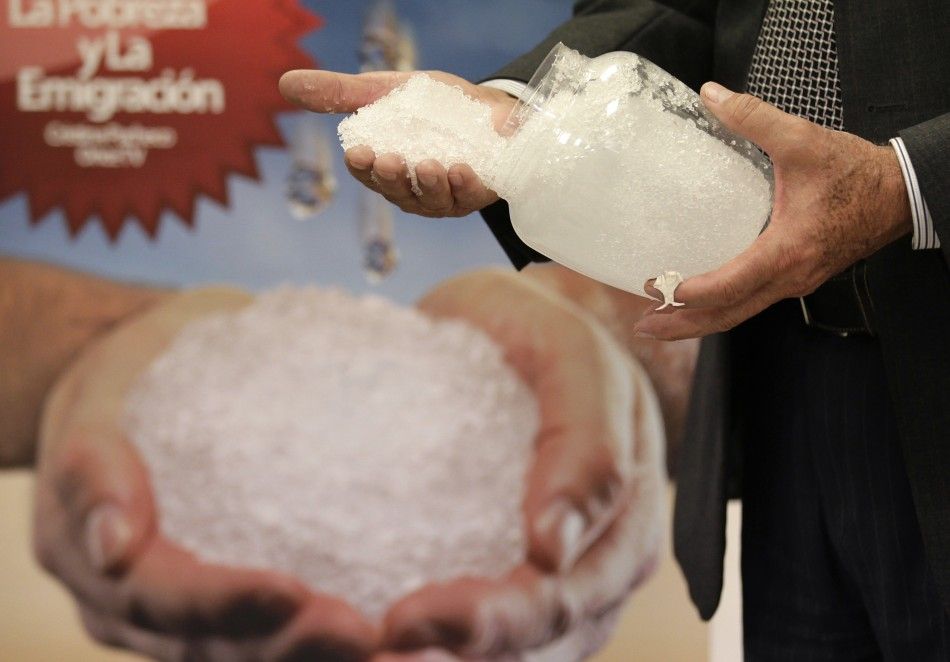Amazing Solid Rain Hydrates Crops by Turning Water into Gel
Sergio Jesus Rico, an engineer from Mexico's National Polytechnic Institute (Instituto Politecnico Nacional), has been nominated for a prestigious 2012 world water prize for his invention of solid rain. It hydrates crops by turning water into gel with potassium polyacrylate, a chemical that can then attach directly to plant roots and water them.
Rico and his team tested the chemical on a cornfield in Colombia and found it yielded about 10 metric tons per 10,000 sq. meters compared to about 600 kilograms per 10,000 sq. meters with conventional watering methods.
That means in places like Mexico, food can be grown in the desert, despite droughts. Water easily evaporates from the soil, and water from the surface often doesn't make it down into the soil for roots to drink. With solid rain, a block of gellified water is buried underground and re-uptakes water when it rains. Each kilogram of solid rain can hold liters of water. It can be used with any kind of plant and lasts for eight to 10 years in the ground.
Start the slideshow to see solid rain in action. Tell us what you think in the comments section below.
MUST READ: Scientists Bore Two Miles into Antarctic Ice, Reach Ancient Lake






© Copyright IBTimes 2024. All rights reserved.











